Addressing Asian Banker Summit 2016 convened on May 11 in Hanoi, Prime Minister Nguyen Xuan Phuc affirmed that the Vietnamese government will continue renewing its economy and pledged to create all possible conditions for investors.
Speaking to more than 1,000 banking leaders and investors both at home and abroad, Prime Minister Nguyen Xuan Phuc voiced Vietnam’s support for the summit’s topic: “New Breakthroughs” which reflects a long-term vision and determination to conduct renovations, looking towards a dynamic and effective financial and banking community.
Over the past three decades, Vietnam has persistently pursued comprehensive economic reforms and has gained marked achievements. With the national annual average growth rate of about 6.6%, Vietnam has become a middle-income country. Its economy operates under a market mechanism and a modern administrative model, which is nearing international standards and practices. The domestic banking system has been one of the pioneers in the reform process and one of the main drivers of the economy. Vietnam is in a new period of development with a stable macro-economy and low inflation towards stable development with a target of reaching GDP of 6.5-7% in the 2016-2020 period.
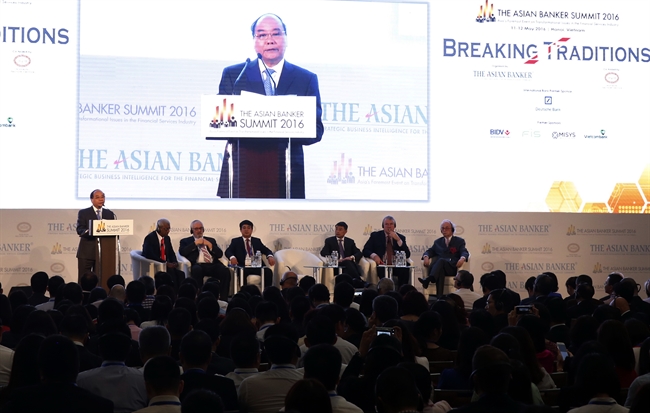 Prime Minister Nguyen Xuan Phuc delivers a speech at the opening ceremony of Asian Banker Summit 2016. Photo: Thong Nhat/VNA
Prime Minister Nguyen Xuan Phuc delivers a speech at the opening ceremony of Asian Banker Summit 2016. Photo: Thong Nhat/VNA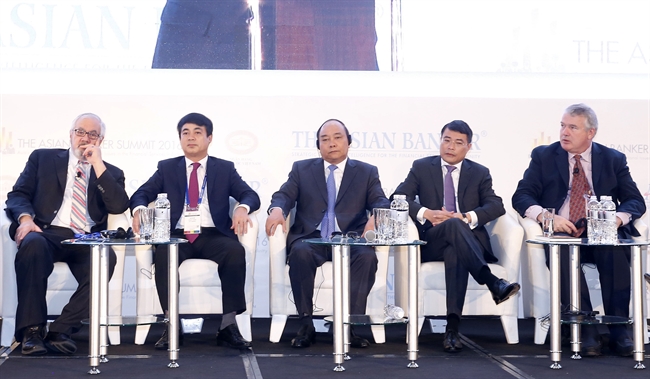
Prime Minister Nguyen Xuan Phuc and delegates at the Asian Banker Summit 2016. Photo: Thong Nhat/VNA
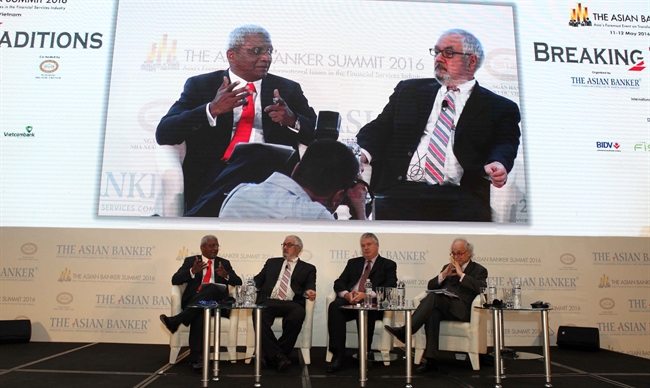
International delegates participate in dialogues at the summit. Photo: Tran Viet/VNA
According to evaluations of the International Monetary Fund (IMF), the World Bank (WB) and the Asian Development Bank (ADB), Vietnam’s economic growth rate reached an encouraging rate and it is one of three countries in East Asia which had a thriving growth rate in 2015. Vietnam is hoping to continue stabilising and to become one of two economies having the quickest growth rate in Southeast Asia in 2016.
The Prime Minister stressed that the Vietnamese government will continue with the tune-up while fulfilling the targets of curbing inflation, stabilising the macro-economy, and speeding up economic restructuring in tandem with growth model transformation. The country will strive to raise productivity, efficiency and competitiveness in order to promote international integration and gear towards sustainable development.
As part of its efforts to increase international integration, by 2020, Vietnam expects to set up trade ties with 55 partners, including all members of the Group of Seven (G7) and 15 members of the Group of 20 (G20). The Vietnamese government pledged to create favorable conditions for investors and always accompany them to settle difficulties and obstacles to obtain success.
Addressing the summit, State Bank of Vietnam’s Governor Le Minh Hung said that in the future the country’s banking sector will continue to promote reforms and integration into the global and regional financial system, improve capacity, apply international standards, ensure an equal competitive environment and create favourable conditions for foreign investors. He also hoped that foreign investors and local banks will make more active contributions to the domestic banking restructuring process in the future.
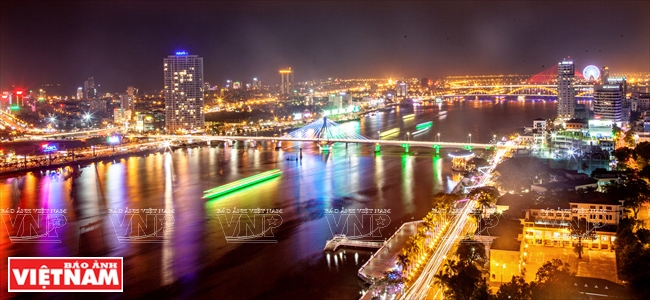
According to IMF and WB’s evaluation, Vietnam will become one of two economies having the quickest growth rate in Southeast Asia in 2016.
In the photo: Da Nang City, wich had the highest Provincial Competitiveness Index (PCI) of the country in 2013, 2014, 2015.
Photo: Cong Dat/VNP
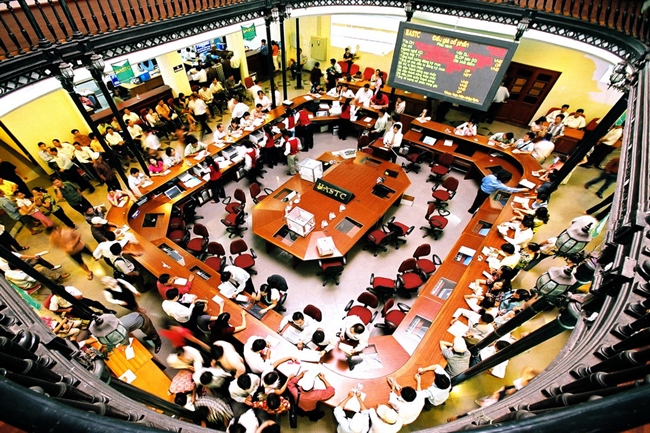
The Vietnam’s Government affirms to continue renewing its economy, curbing inflation, stabilising the macro-economy
and speeding up economic restructuring. In the photo: A trading session at the Hanoi Stock Exchange. Photo: Pham Hau/VNA
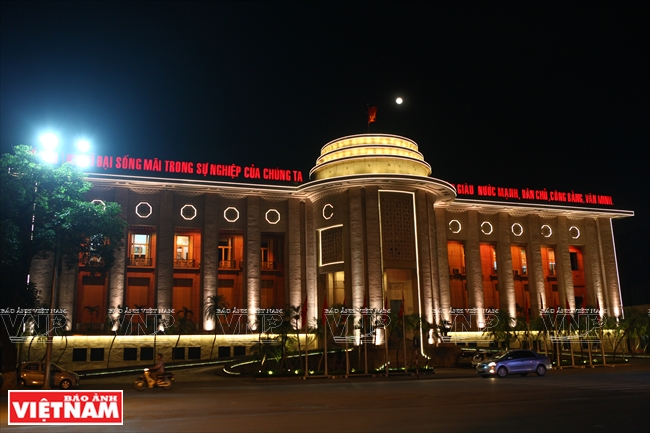 The Vietnam’s banking sector will continue to promote reforms and integration into the global and regional financial system.
The Vietnam’s banking sector will continue to promote reforms and integration into the global and regional financial system.
In the photo: The State Bank of Vietnam’s Headquarters. Photo: Tran Thanh Giang/VNP
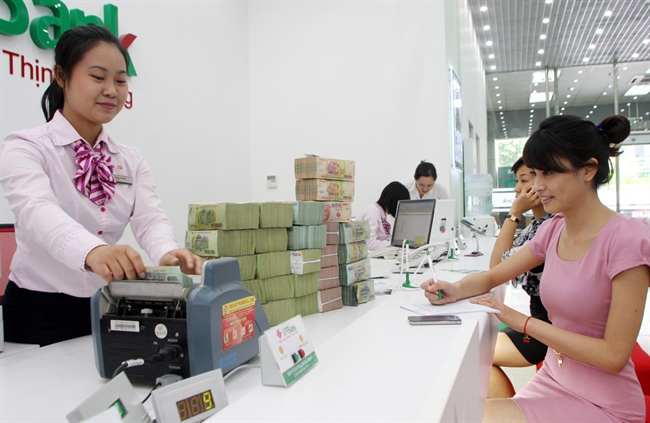 The banks ensure an equally competitive environment and create favourable conditions for investors. Photo: Tran Viet/VNA
The banks ensure an equally competitive environment and create favourable conditions for investors. Photo: Tran Viet/VNA
The Asian Banker Summit is the largest annual regional meeting, attracting the participation of more than 1,000 leaders of banks and financial organisations from over 30 countries in Asia and countries with developed economies. This is the second time Vietnam has hosted the summit which offers an opportunity for the international community to learn more about the Vietnamese banking system and help local banks develop international relations, heighten their competitiveness, expand the market and apply management experience as well as cutting-edge technology in the banking and finance sector. It is a great opportunity for the host country to boost its investment attraction.
|
By Chinhphu.vn/VNP